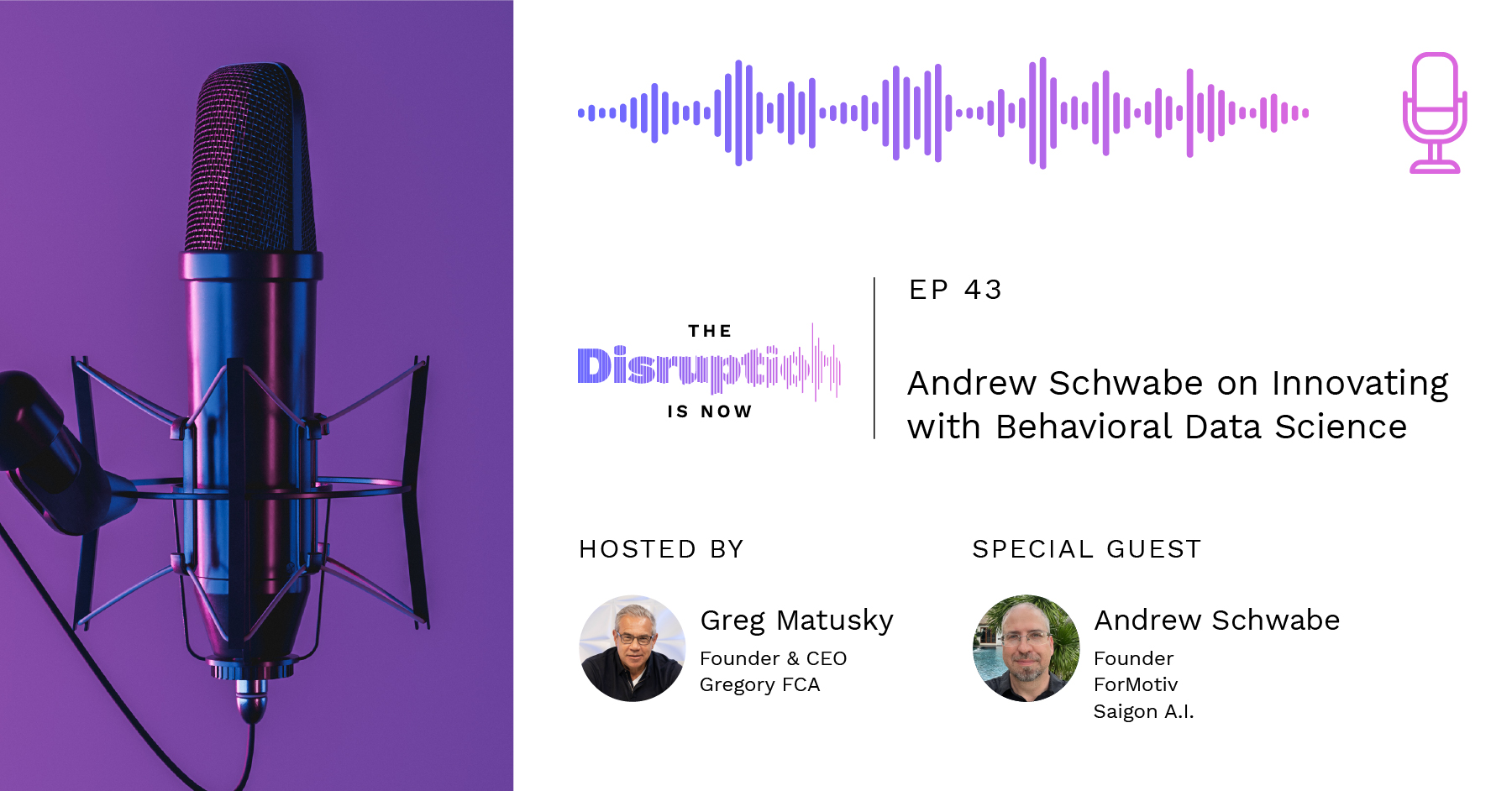Insurers are using AI to digest new data points that help predict risk. Educators have a prime opportunity to put AI to work in the classroom to advance students’ learning. AI is helping regions like Southeast Asia close longstanding technology gaps faster than anyone anticipated.
These are just a few of the topics of conversation on the latest episode of The Disruption Is Now. Host Greg Matusky sits down with Andrew Schwabe, Founder and Chairman of ForMotiv and Saigon AI for a wide-ranging conversation on the unexpected ways AI is transforming every industry and region of the planet.
Watch now:
Key takeaways
AI is rapidly closing the global tech gap
Andrew shares that AI is accelerating technology adoption in Southeast Asia at an unprecedented rate. Where the region used to trail developed nations by three, five, even eight years, the gap has now narrowed to six months with AI.
This rapid catch-up opens new opportunities in markets embracing AI-driven solutions. Ignoring these emerging markets could mean missing out on significant growth.
Behavioral data gives the insurance industry a new edge
ForMotiv is a pioneer in using behavioral data to predict insurance outcomes. By analyzing how applicants interact with online forms—typing speed, hesitations, copy-pasting—the company identifies patterns correlating with risk.
This digital method mirrors traditional practices where agents observe an applicant’s body language for clues. The result is more accurate risk assessment and personalized customer engagement, giving insurers a competitive edge.
AI will transform education despite resistance
Andrew, researching educational psychology and AI, believes education is on the brink of significant change. Despite resistance from educators fearful of the unknown, integrating AI into teaching can enhance learning experiences.
For instance, using AI to generate essay drafts allows students to compare and learn from AI-generated content, fostering deeper understanding and critical thinking.
Privacy issues are a major barrier to AI progress
Privacy concerns present a significant hurdle in AI development. The unclear and inconsistent rules around data usage—especially regarding what can be included in AI training models—create a wild west scenario.
Some AI models inadvertently incorporate copyrighted material or sensitive data, leading to legal and ethical issues. Technologies like Retrieval-Augmented Generation (RAG) and Low-Rank Adaptation (LoRA), or even small language models, could address these concerns.
Key moments
- AI’s potential to disrupt education (5:04)
- How AI can enhance learning and teaching methods (6:07)
- How ForMotiv uses behavioral data in the insurance industry (10:21)
- Collecting behavioral data directly from user interactions (11:28)
- The state of AI in Southeast Asia (13:49)
- Keeping an eye on where the puck is going with AI (19:25)
- Privacy concerns in AI development and the “wild west” of data usage (22:44)
- Andrew’s experience as an American businessman in Vietnam (25:12)

